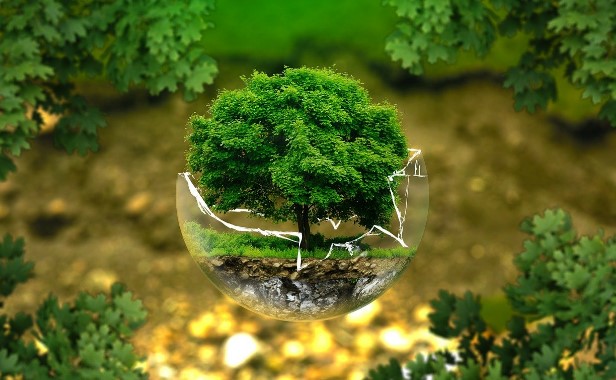Is Environmental Science Hard? (Here is the Detailed Answer) 2024
Environmental science is an interdisciplinary field of study that bridges the gap between various scientific disciplines, bringing about a fusion of perspectives that work towards a common objective: to better understand our natural world and how human actions impact it. The field holds a myriad of answers to the most pressing questions of our time, such as climate change, biodiversity loss, pollution, and sustainability. However, this important field may be deemed hard due to the breadth and depth of the concepts it covers. Let’s delve into the inherent excitement of “is environmental science hard”.
Challenge in Studying Environmental Science

The complexity of environmental science is inarguable, largely due to its interdisciplinary nature. It involves a deep dive into various branches of science—biology, chemistry, physics, geography, social sciences, and even political science. Grasping these complex concepts and applying them holistically to solve environmental issues can indeed pose a challenge.
For instance, understanding how human-induced climate change affects biodiversity requires knowledge about climatology, ecology, and biology. Dealing with this complexity, however, should not be viewed as an uphill battle but rather as an exciting puzzle waiting to be solved.
Environmental Science Curriculum

One reason why some may find “is environmental science hard” is the wide-ranging and multifaceted environmental science curriculum. It requires a diverse skill set, including data analysis, critical thinking, problem-solving, and effective communication. From conducting fieldwork and lab research to analyzing data and writing comprehensive reports, the curriculum trains students to become well-rounded scientists capable of tackling global environmental issues.
Though challenging, the curriculum offers a rewarding learning experience. It brings the excitement of connecting various scientific concepts, understanding intricate ecological interactions, and delving into the human-social dimensions of environmental issues.
Difficulty and Thriving
It is important to highlight that the perceived “is environmental science hard” can be transformed into motivation. The challenges in this field can be seen as stepping stones to build resilience, critical thinking, and problem-solving skills. Embracing these challenges and overcoming them can result in immense personal and professional growth.
Moreover, the career opportunities in environmental science are broad and growing. With the increased focus on sustainability and green initiatives, environmental scientists play a pivotal role in society. They work in academia, government, nonprofit organizations, and private companies, taking on roles as diverse as conservation scientists, environmental consultants, climate change analysts, and many more.
Getting Started in Environmental Science

The journey into environmental science often starts with an inherent interest in nature and a passion for preserving it. If you are wondering how to get started in environmental science, begin with exploring the core concepts and principles of this field, such as ecosystem dynamics, human-nature interactions, and sustainability.
In terms of education, various universities offer environmental science courses, from bachelor’s degrees to doctoral programs. These programs provide a comprehensive understanding of various environmental science topics and equip students with the skills needed to thrive in this field.
Protecting Our Planet

While it’s true that environmental science may be hard, it is equally filled with gratification and excitement. Nothing quite compares to the joy of understanding the intricate workings of our natural world, and the satisfaction of contributing to its protection. Whether it’s studying the life of microorganisms in the soil, forecasting climate trends, or developing sustainable solutions, each aspect of environmental science brings its own rewards.
Moreover, the field is in a constant state of evolution, with current research topics ranging from the impacts of plastic pollution to the role of green energy in mitigating climate change. It’s a dynamic field with endless opportunities for learning and growth.
Concepts, Theories, and Fieldwork

Environmental science is more than just a traditional science. It incorporates principles from the social sciences to understand not just the environment and its components, but also how human societies interact with nature. Key environmental science concepts such as sustainable development, climate change adaptation and mitigation, biodiversity conservation, and pollution management necessitate an understanding of political, economic, and sociocultural contexts in addition to scientific data.
The theories underpinning environmental science are as diverse as the subject itself. They span from theories of ecosystem dynamics and natural resource management to theories concerning human behavior and environmental governance. These theories serve as essential frameworks that allow environmental scientists to interpret patterns, predict outcomes, and devise sustainable solutions.
Environmental science fieldwork is another aspect of the discipline that may be challenging but also incredibly rewarding. This hands-on work can involve data collection in various ecosystems, field experiments, or social surveys, all of which contribute to a richer understanding of our natural world and our place within it. Fieldwork demands patience, resilience, and adaptability, but in return, it offers an unparalleled opportunity to connect with nature and witness firsthand the subjects of study.
Environmental Science and Other Disciplines
A compelling aspect of environmental science is its connection to other scientific disciplines. For example, in studying the impacts of climate change, an environmental scientist may need to understand atmospheric physics (to comprehend the greenhouse effect), chemistry (to examine ocean acidification), and biology (to evaluate impacts on biodiversity).
Environmental science’s relation to other scientific disciplines doesn’t stop there. It extends to social sciences and humanities, exploring how societal structures, economies, and cultures interact with and influence the environment. This interdisciplinary approach provides a more comprehensive understanding of environmental issues, ensuring solutions address not just ecological but also social aspects.
Environmental Issues and Environmental Science’s Response
Environmental science is inextricably linked to the pressing environmental issues we face today. From climate change and biodiversity loss to pollution and deforestation, environmental science provides the tools necessary to understand these issues, predict their impacts, and devise mitigation strategies.
More than just understanding these issues, environmental science plays a crucial role in shaping our response to them. It’s at the forefront of designing and implementing climate change mitigation strategies, restoring degraded ecosystems, conserving biodiversity, and promoting sustainable resource use. In doing so, it supports the global goal of sustainable development, ensuring a healthy planet for future generations.
Environmental Science and Sustainable Future
Ultimately, studying environmental science paves the way for a more sustainable future. By equipping us with the knowledge and tools to address environmental issues, it enables us to work towards solutions that are not only scientifically sound but also socially equitable and economically viable.
Whether it’s through pioneering research, policy-making, conservation work, or environmental education, environmental science empowers us to make a positive difference in the world. It might be a challenging field, but the outcomes are unquestionably rewarding and impactful.
Frequently Asked Questions
What are the ethical considerations in environmental science?
Ethical considerations in environmental science primarily revolve around the concepts of sustainability, fairness, and respect for all forms of life. This includes considering future generations in our current actions, promoting equitable resource use, and respecting biodiversity.
What are the impacts of human activities on the environment?
Human activities can have significant impacts on the environment, including climate change, deforestation, air and water pollution, habitat loss, and biodiversity decline.
What is the importance of environmental science?
Environmental science is crucial for understanding our planet’s complex systems, how humans interact with these systems, and how we can mitigate negative impacts and foster a sustainable future.
How does environmental science contribute to sustainable development?
Environmental science provides the foundational knowledge needed to develop sustainable solutions to environmental problems. It informs policy-making, planning, and decision-making processes, ensuring they are grounded in scientific evidence.
Also Read: Daddy in Sign Language (ASL): A Comprehensive Guide
Conclusion
In conclusion, environmental science is as stimulating as it is demanding. Its interdisciplinary nature, which might initially seem challenging, is actually one of its greatest strengths, offering a comprehensive and holistic understanding of our world. Studying “is environmental science hard” not only equips us with knowledge but also inspires us to translate this knowledge into actions that can safeguard our planet. It’s not just about understanding the environment; it’s about making a tangible difference for a sustainable future.





